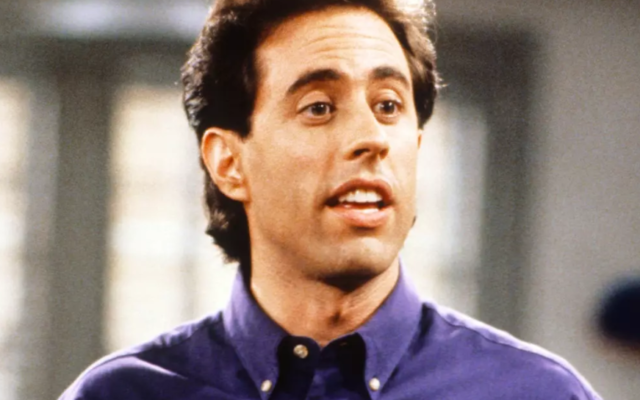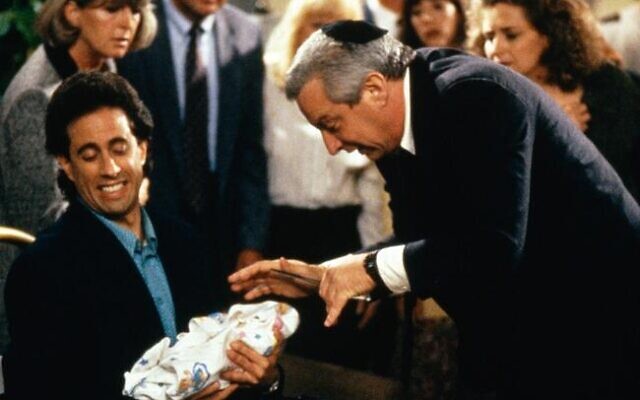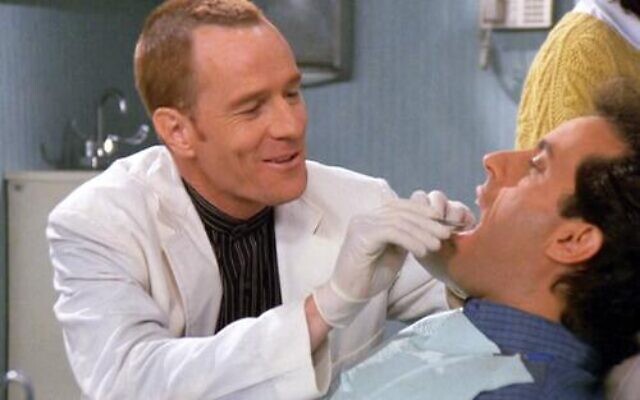Seinfeld Is Back and Streaming Endlessly
Netflix and Comedy Central have paid big money to feature all 180 episodes of the beloved series.

Starting Oct. 1, fans of the popular sitcom “Seinfeld,” which ran for nine seasons on NBC, will have all 180 episodes at their fingertips.
Netflix is putting the show’s entire catalog on its streaming platform, which is available in 4K in almost any country in the world. The only exceptions are Crimea, North Korea, Syria and China.
Although the sale price for the five-year global streaming rights has never been disclosed, it is generally believed that the deal cost Netflix well above the $400-$500 million paid recently for similarly successful series like “Friends” and “The Office.”
The high price is just one indication of how heated the race for prime media properties has become, as competitors like Disney, Apple, Amazon, WarnerMedia and Viacom have gone after new subscribers.
This year, Viacom came away with a consolation prize: for $100 million they signed an exclusive five-year domestic syndication contract for the show. The company intends to regularly broadcast the programs on its cable channel, Comedy Central, beginning Monday, Oct. 11. A special showing of what the channel calls a selection of viewers’ favorite episodes will run on Saturday, Oct. 9.
Although Netflix, Hulu and Amazon have spent lavishly to create new programming, it is the familiar faces on hits like “Grey’s Anatomy,” “Friends” and “NCIS” that have been most popular.

During the 1990s, when “Seinfeld” was at the top of the primetime ratings heap, the series was said to have contributed $200 million dollars a year to NBC’s bottom line. The network reportedly was so eager to sign creator Jerry Seinfeld to a 10th season that they offered him $1 million an episode, but the comedian decided to leave before the quality of the show declined.
Today, his ownership stake in the repeated sales of the series has contributed to a net worth estimated at $950 million.
The half-hour program, which was created by the star, Jerry Seinfeld, and producer and writer Larry David, almost didn’t get off the ground. It began as a 90-minute special, purporting to depict how a comedian puts together his routine based on material he gathers as he goes about his day. At the end of the show, there would be an on-stage performance of the routine. But it was soon apparent that 90 minutes was too long for the show, and a shorter, 30-minute sitcom couldn’t accommodate a stand-up routine.
What remained became the basis for the new series set on the Upper West Side of New York. Each half hour would be made up of emotionally honest, humorous observations transformed into stories about everyday modern life, pared down to their essence, like stand-up comedy. Essentially it would be about four self-absorbed, neurotic New York Jews, several of whom were lightly disguised with other ethnicities by the show’s creators. That move didn’t really seem to fool knowledgeable viewers.

Eventually there would be an episode about what the show called “shiks-appeal,” which attempted to explain why Jewish men pursue gentile women, and one about a gentile dentist who Jerry suspects converted just so he could tell Jewish jokes. Then there was the episode about an incompetent mohel who almost botches a bris.
NBC’s president at the time, Brandon Tartikoff — who is both Jewish and from New York — thought the comedy was “too New York and too Jewish.” Still, “The Seinfeld Chronicles,” as it was initially called, made its debut as a mid-season replacement during the 1989-1990 season.
Much of the brilliance of the show revolves around Jerry’s comments about everyday life. Questions like which babka is better, cinnamon or chocolate, or what is the proper amount of time to linger over a glimpse of a woman’s cleavage.
Yet Seinfeld is also about the importance of small annoyances and how the protagonist seems to bounce along through life without very many deep commitments other than to the sharp eyes with which he observes the world.
The tales of love and life in the big city that revolve around the weekly adventures of Seinfeld, the comedian, and his three single, quirky and uniquely individual friends gradually came to captivate a nation.

Interestingly, 23 years after the series flickered out, it still seems to have lost little of its appeal for its devoted audiences. They never seem to fall out of love with the images that flow from such phrases as the mimbo, the soup Nazi, and “Serenity Now.”
The only question today is whether new streaming audiences in Burkina Faso, Moldova, Myanmar, and Bangladesh will fall in love with the infamous “show about nothing.”
- Bob Bahr
- Arts and Culture
- Community
- Jerry Seinfeld
- television
- Netflix
- NBC
- Comedy Central
- Viacom
- Brandon Tartikoff
- Streaming
- Jewish comedy
- “Seinfeld"
- friends
- “The Office”
- Disney
- Apple
- Amazon
- WarnerMedia
- syndication
- Hulu
- “Grey’s Anatomy"
- "NCIS"
- Larry David
- Bryan Cranston
- Jason Alexander
- Julia Louis Dreyfus
- Upper West Side
- New York
- New York Jews
- Jewish men
- gentile women
- Jewish Jokes
- Mohel
- “The Seinfeld Chronicles"
- Big City
- Love
- Weekly Adventures
- Soup Nazi
- Mimbo
- "Serenity Now"
- "Show about Nothing"
- Arts



comments